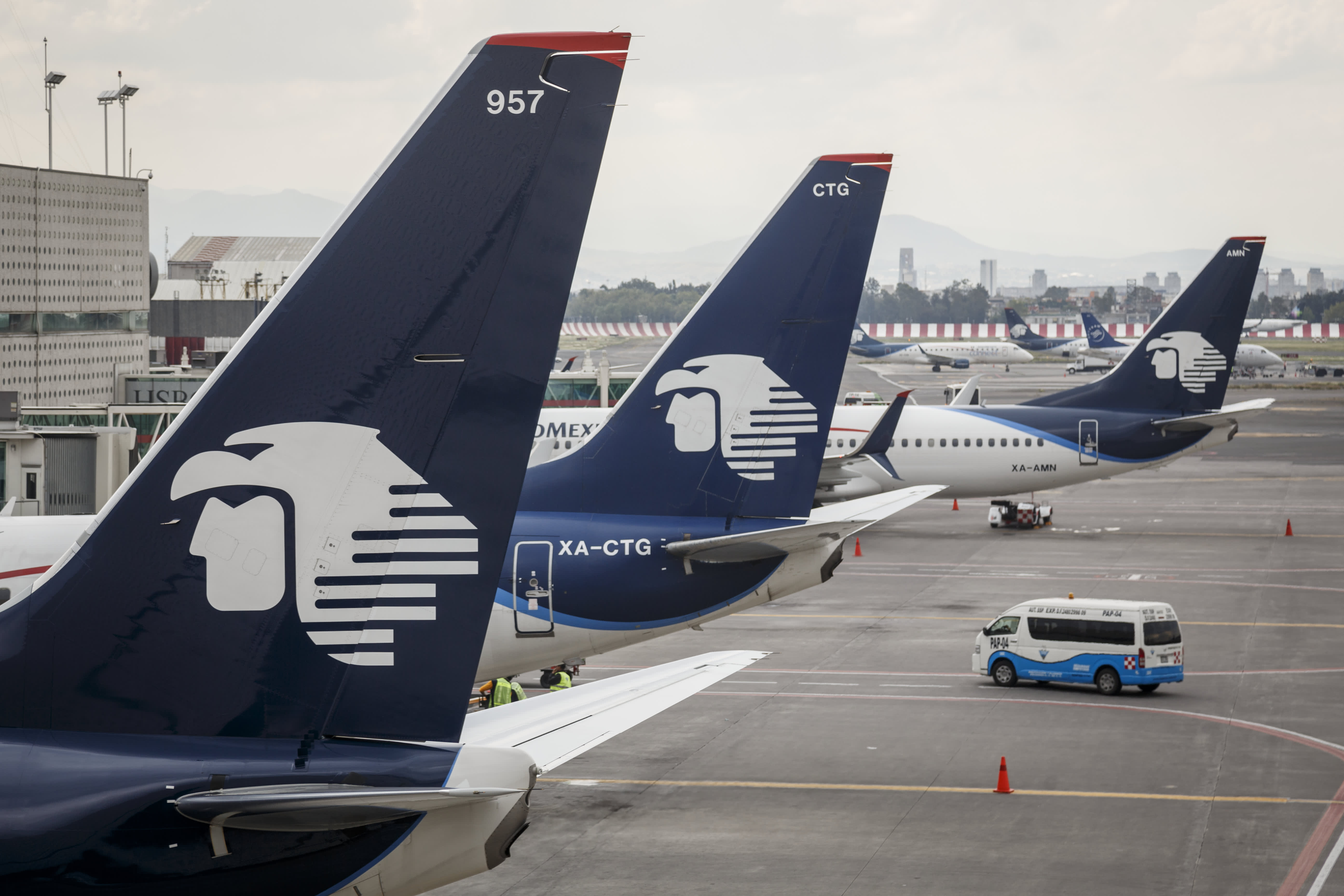Aeromexico airplanes at the Mexico City International Airport.
John Gress | Corbis | Getty Images
Delta Air Lines spent years amassing equity stakes in foreign airlines from the U.K. to Chile to grow internationally and gain sway over those carriers. The coronavirus pandemic has upended those plans and is proving costly as financial turmoil hits airlines around the world.
Foreign-ownership rules generally prohibit outright ownership of airlines in other countries but equity investments and other partnerships have proved popular for airlines eager to gain access to international markets.
But international travel has been particularly challenging in the pandemic as carriers grapple with not only concerns over the virus but outright travel bans. Delta’s domestic passenger revenue, which makes up more than three-quarters of ticket sales, dropped 93% in the second quarter from a year ago, but revenue fell 98% in Latin America and 97% for trans-Atlantic routes.
Delta on Tuesday posted a net loss of $5.7 billion in the second quarter, its largest quarterly loss in 12 years. The Atlanta-based airline took $2.1 billion in charges tied some of those investments in foreign airlines. It wrote down $1.1 billion on its investment in LATAM Airlines, Latin America’s largest carrier, which filed Chapter 11 bankruptcy protection in May, less than a year after Delta announced it was buying a 20% stake, snatching the carrier away from its previous partner, American.
It also took a $770 million write-down in its Aeromexico investment after suffering financial losses and the Mexican airline filed for Chapter 11 bankruptcy protection. And Delta took a $200 million charge on its investment in Virgin Atlantic.
Delta still has a framework in place for strategic partnerships with those airlines, which gives it further reach into those markets and vice versa.
Delta noted that the governments in these airlines’ home countries didn’t provide financial support like the $50 billion in loans and direct federal aid set aside for U.S. airlines.
“While each of these is disappointing, none of our partners’ home countries were prepared to provide governmental financial support similar to what the U.S. Treasury did with the CARES Act which necessitated their decisions to restructure,” Delta CEO Ed Bastian said in an earnings call Tuesday. “We have the most — the utmost confidence in all of our partners and remain firmly committed to our partnerships, which will be important when we rebuild a much more resilient international network in the recovery.”
